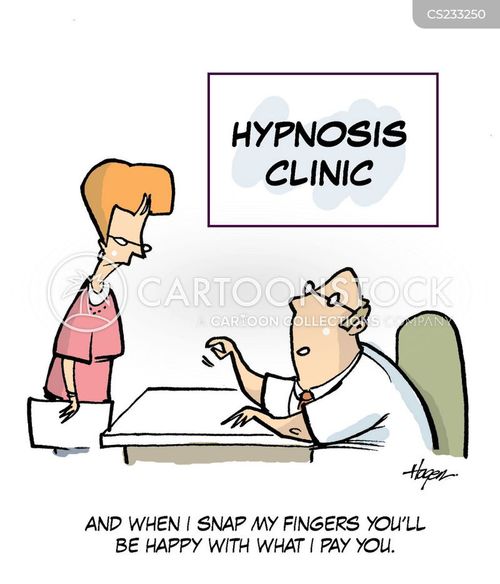The Science of Hypnosis: Interesting Facts You Didn’t Know

Hypnosis is an altered state of consciousness that is often mentioned in movies, books, and television programs. However, not all people fully understand what hypnosis is. We invite you to find out the most interesting things about such a mysterious phenomenon as hypnosis.
Hypnosis increases suggestibility
Hypnosis is a strange art that allows a person to enter a state of suggestibility. A person under hypnosis hears and follows the hypnotist's instructions. It turns out that some people are more suggestible than others.
Scientists have conducted some studies that have confirmed that more suggestible people can get much more from hypnosis than non-suggestible people. That is, for people with a low level of suggestibility, hypnosis is a quite useless thing.
Hypnosis show
Popular media gives completely the wrong idea about hypnosis. For example, when talking about performances using hypnosis, scenes that immediately come to mind are scenes in which the hypnotist forces his subjects to perform some strange things in front of an audience.
This type of hypnosis is sometimes called stage hypnosis and is used solely for entertainment purposes. Stage hypnosis is a combination of cheap tricks, it involves people who are specifically tested in advance for suggestibility. This hypnosis is designed to surprise the audience and attract their attention, but these goals have little to do with the real goals of hypnosis.
Hypnosis treatment
The main purpose of using hypnosis is therapy. Hypnotherapy, or hypnosis treatment, is a practice that is used to help patients get rid of bad behavior or unwanted memories. With the help of hypnotherapy, the doctor tries to create unconscious changes in the patient. He puts the patient into a certain state and instills in him the desired thought.
The word hypnosis translated from ancient Greek means “sleep”. A person under hypnosis seems to sleep, being in a relaxed state. Hypnotherapy is considered a legitimate practice, but many people do not trust it. Others equate it to a new generation of alternative medicine.
Self-hypnosis
It may surprise you, but you don't have to be near the hypnotist to fall into a state of hypnosis. You can put yourself into hypnosis if you have certain knowledge. Self-hypnosis allows you to use your subconscious mind to influence your behavior when your conscious mind cannot cope with this task.
The method of self-hypnosis or self-induction was invented by the French psychologist Emile Coue, who in 1922 published the book “The School of Self-Control through Conscious Self-Hypnosis,” which describes in detail how a person can perform self-hypnosis in order to achieve for himself the same results that a hypnotist achieves.
One experienced hypnotist wanted to experiment with turning off pain signals through self-hypnosis. He tried this during the operation. He claimed that it worked and that he felt no pain at all, but it is worth recognizing that this is hardly possible and that this situation still needs to be tested.
Immersion in hypnosis
Hypnosis is a process used by a hypnotist to hypnotize a patient. Immersion in a hypnotic trance is necessary to increase suggestibility. Rapid hypnotization is often used on stage. This is required so that the public does not lose interest in the process. If a person quickly succumbs to hypnosis, the process becomes very simple.
Memory and hypnosis
Anyone who has seen performances using hypnosis expects that the hypnotized person, upon awakening, will not remember what happened to him during the hypnosis session. There is some truth in this, but this only applies to cases where the hypnotized person really wants to forget everything and when the hypnotist orders him to forget everything.
It has been found that these memories are quite easy to bring back with the right hints, but highly suggestible people are quite good at blocking these memories.
Hypnotism is also often used to restore lost memories, but it is not always possible to verify that these are correct memories. For example, it often happens that the patient is so indoctrinated with some memories that he actually believes that they actually happened.

History of hypnosis
Although hypnosis, or at least the popular concept of it, has become popular in recent decades, the origins of hypnosis go back much further. Hypnosis is said to have been used as a form of anesthesia as early as the early 19th century. This method was called "hypnoanesthesia".
However, hypnosis appeared much earlier. Archaeologists confirm that cultures that used hypnosis lived about 3 thousand years ago. Hypnosis was practiced by the ancient Egyptians, and some forms of it were also used by the ancient Greeks.
The American Medical Association convened a meeting in the 1950s on human mental health and decided to recognize hypnosis as an official method of therapy. However, several decades later, the same association decided that hypnosis was not a reliable medical tool.
Self-control
This is one of the most common myths about hypnosis that exist today: the hypnotist can always force you to do his bidding. However, as mentioned earlier, there are more suggestible and less suggestible people.
Hypnotists must be good psychiatrists and must explain to their patients in advance that they will not force them to do anything under hypnosis. Any decision you make while under hypnosis will be a decision you would want to make while conscious. You will not do anything contrary to your moral or religious principles.
Think of hypnosis as a form of putting some pressure on you. You may be more suggestible, but no one can force you to do anything you don't want to do.
Consciousness and hypnosis
Although the word hypnosis means sleep, when you are in a hypnotic state you are not actually falling asleep. As it turns out, you can not only have complete control over your actions but also not fall into a sleep state.
How to learn hypnosis
If you would like to learn hypnosis so that you can use it with good intentions, you should seek help from experts in this technique. There are many special centers and hypnosis courses. However, to become a professional, you need to have a psychological or medical background.
If you do not want to turn to specialists, special literature can help you, but remember that in order to master the technique you need to train long and hard.
You should also remember that not all people can become good hypnotists. This requires confidence in yourself and your abilities, the ability to persuade, the ability to control yourself, as well as patience and attention. We must not forget the basic rule of any doctor: do not harm the patient.



